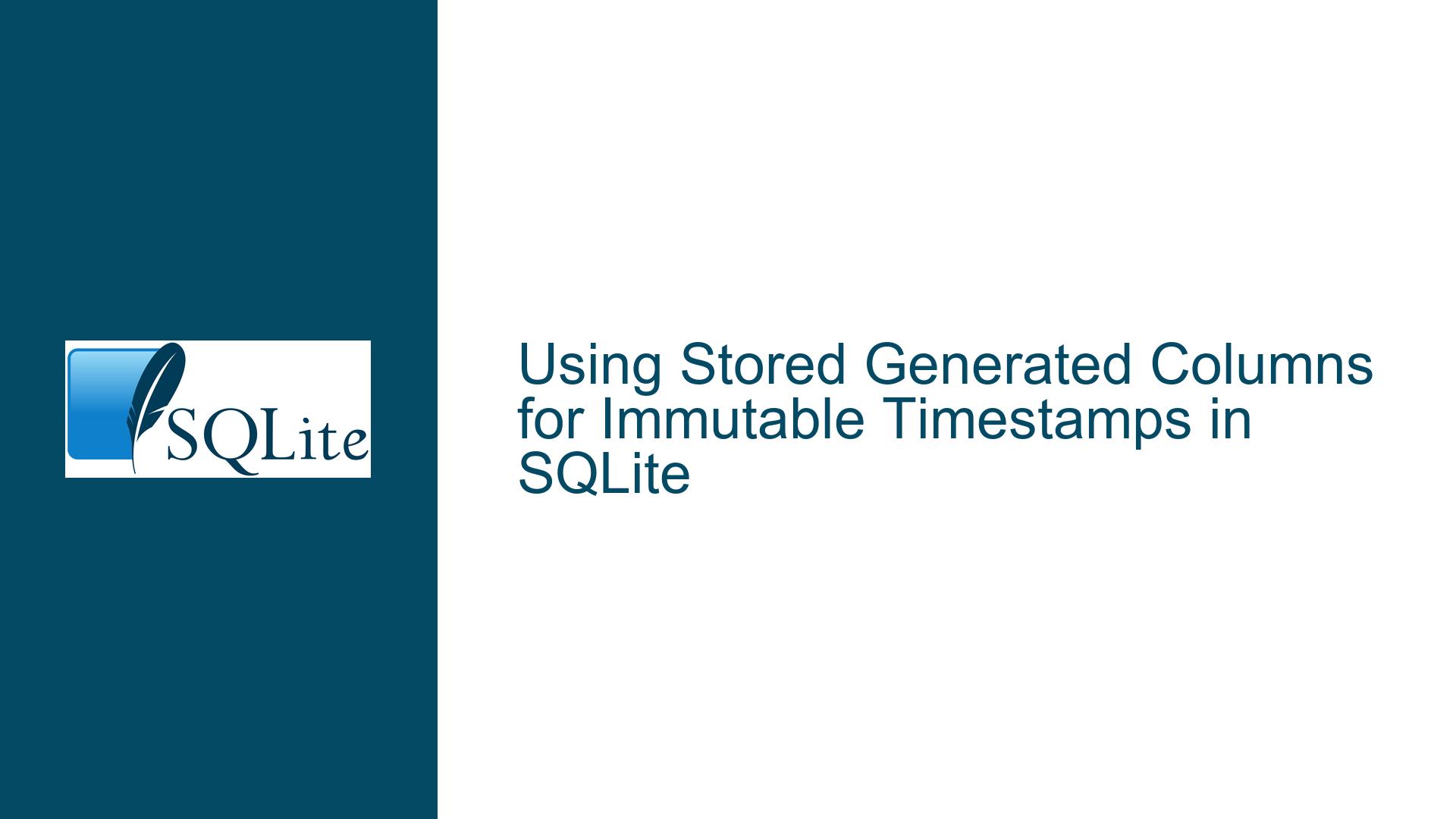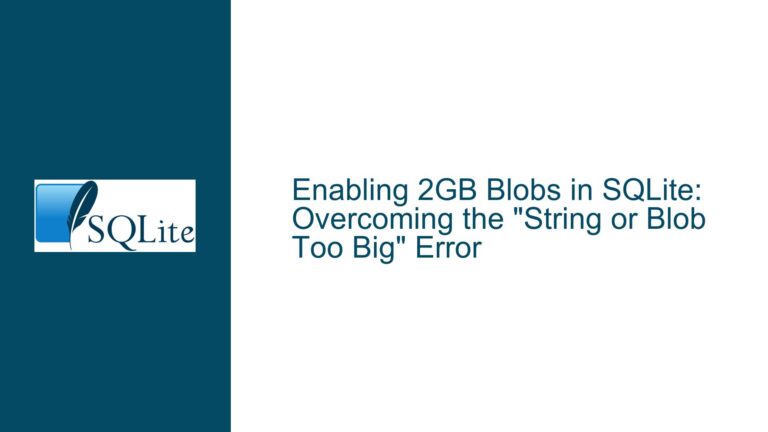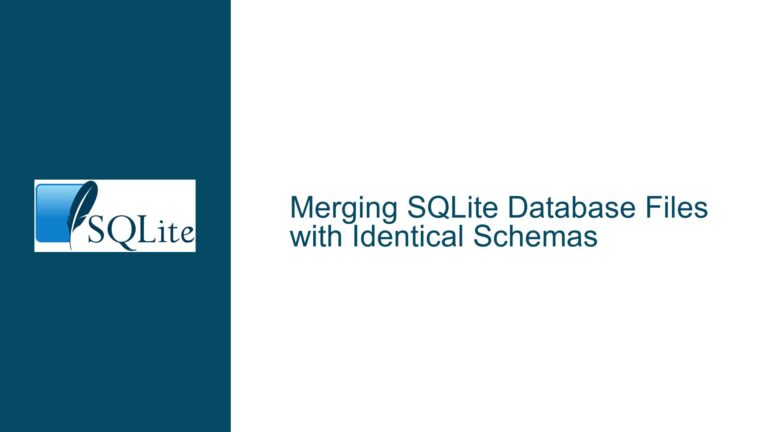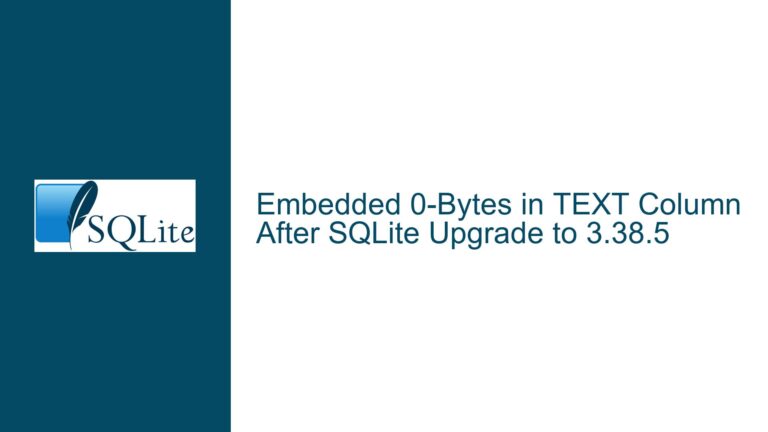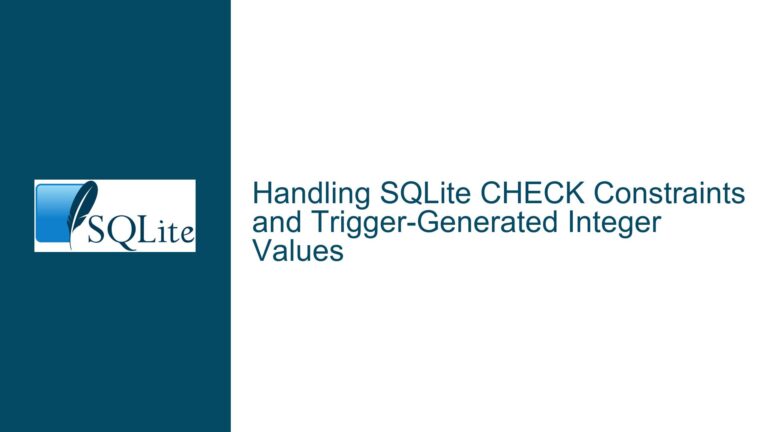Using Stored Generated Columns for Immutable Timestamps in SQLite
Understanding the Limitations of Stored Generated Columns for Timestamps
The concept of using stored generated columns in SQLite to create immutable timestamps is an appealing one, especially for developers looking to enforce data integrity and prevent unauthorized modifications to timestamp fields. However, SQLite imposes certain restrictions on generated columns that make this approach currently unfeasible. Specifically, SQLite requires that the expressions used in generated columns be deterministic. This means that the expression must always produce the same output given the same input, which is not the case for functions like unixepoch('now') or current_timestamp, as they depend on the current time and are therefore non-deterministic.
The deterministic requirement for generated columns is rooted in SQLite’s design philosophy, which prioritizes consistency and predictability in computed values. Since timestamps are inherently time-dependent, they cannot be used directly in stored generated columns. This limitation necessitates alternative approaches to achieve the desired functionality, such as using triggers to enforce immutability and ensure that timestamp fields are not tampered with during INSERT or UPDATE operations.
Exploring the Role of Triggers in Enforcing Immutable Timestamps
Given the constraints on stored generated columns, triggers emerge as a powerful tool for enforcing immutable timestamps in SQLite. Triggers allow developers to define custom logic that is executed automatically in response to specific events, such as INSERT or UPDATE operations on a table. By using triggers, it is possible to create a mechanism that prevents unauthorized changes to timestamp fields, effectively achieving the same goal as a stored generated column but without violating SQLite’s deterministic requirement.
The provided example demonstrates how triggers can be used to enforce immutability for a timestamp field. The example table includes a timestamp column with a default value of current_timestamp. Two triggers are defined: example_ins and example_upd. The example_ins trigger is executed before an INSERT operation and ensures that the timestamp field is set to the current timestamp if it is not already provided. The example_upd trigger is executed before an UPDATE operation on the timestamp field and prevents any changes to the timestamp by raising an error if the new value differs from the old value.
This approach leverages SQLite’s trigger mechanism to enforce data integrity rules that cannot be implemented using generated columns. By using triggers, developers can ensure that timestamp fields are automatically populated with the correct values during INSERT operations and remain immutable during UPDATE operations, thereby maintaining the integrity of the data.
Implementing and Validating Trigger-Based Immutable Timestamps
To implement trigger-based immutable timestamps in SQLite, developers must follow a series of steps to define the necessary table schema and triggers. The first step is to create the table with the desired columns, including the timestamp field. The timestamp field should be defined with a default value of current_timestamp to ensure that it is automatically populated with the current date and time during INSERT operations if no value is provided.
Once the table is created, the next step is to define the triggers that will enforce the immutability of the timestamp field. The example_ins trigger should be defined to execute before INSERT operations on the table. This trigger should check whether the timestamp field is being set to a value other than current_timestamp and raise an error if so. This ensures that the timestamp field is always set to the current date and time during INSERT operations, preventing any attempt to forge the timestamp.
The example_upd trigger should be defined to execute before UPDATE operations on the timestamp field. This trigger should compare the new value of the timestamp field with the old value and raise an error if they differ. This ensures that the timestamp field cannot be modified after it has been set, maintaining its immutability.
After defining the triggers, it is important to validate their functionality by performing a series of tests. These tests should include INSERT operations with and without explicit values for the timestamp field to verify that the field is correctly populated with the current date and time. Additionally, UPDATE operations should be performed on the timestamp field to confirm that any attempt to modify the field results in an error.
By following these steps, developers can successfully implement trigger-based immutable timestamps in SQLite, ensuring that timestamp fields are automatically populated and remain unmodifiable throughout the lifecycle of the data. This approach provides a robust solution to the limitations of stored generated columns and upholds the integrity of the data in SQLite databases.
Conclusion
The use of stored generated columns for immutable timestamps in SQLite is currently prohibited due to the deterministic requirement for generated column expressions. However, this limitation can be effectively addressed by using triggers to enforce immutability and ensure that timestamp fields are not tampered with during INSERT or UPDATE operations. By defining appropriate triggers and validating their functionality, developers can achieve the desired behavior and maintain the integrity of their data. This approach leverages SQLite’s powerful trigger mechanism to provide a robust solution to the challenges associated with immutable timestamps, ensuring that timestamp fields are automatically populated and remain unmodifiable throughout the lifecycle of the data.
